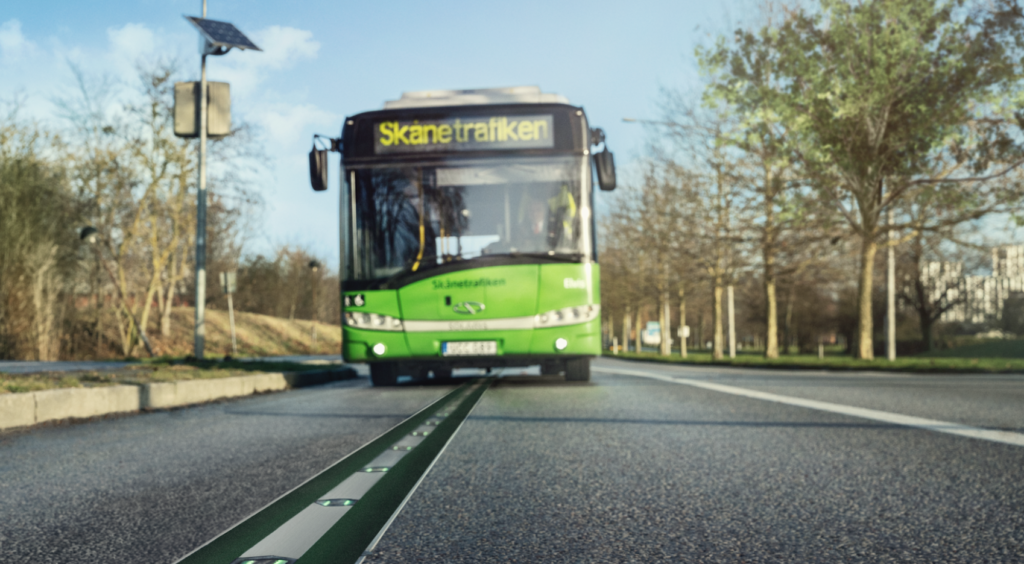Sweden is set to build its first permanent electric motorway as part of its goal to achieve fossil-free transport and reduce its carbon impact. The project is a pilot electric road that aims to demonstrate the technology behind electrifying roads. The project is being led by the Swedish Transport Agency, Trafikverket, with funding provided by the Swedish government. The estimated cost of the project is 50 million euros.
Sweden’s new project is expected to be a significant step towards a greener transportation model. The so-called “e-motorway” will be constructed along a 21km stretch of the current E20 motorway, which connects the country’s two largest cities – Stockholm and Gothenburg. The route was specifically chosen as most freight transported between the north and south of Sweden travels in the area. Electric roads have been on trial for the past three years with the company EVolution Road. Other countries, such as France and Germany, are also exploring the possibility of building e-motorways.

Driving Decarbonization through Testing and Innovation
Senior Advisor Roger Ullström explains that the purpose of the electric road project is to test and verify the technology. Heavy goods vehicles are responsible for a large proportion of carbon dioxide emissions from road traffic, and this project aims to reduce those emissions by 20%. Additionally, the electric road can potentially reduce emissions from other types of traffic, such as passenger cars and buses. In Europe, road transport contributes 21% of the EU’s total carbon dioxide (CO2) emissions, the main greenhouse gas.
The 13-mile project has been in development since 2019 and is currently in the procurement phase. The Swedish Transport Administration is evaluating submitted tenders for the project. The project is set to be completed by the end of 2026, and an electrified motorway is being planned. Experts believe an electrified motorway will allow vehicles to travel longer distances with smaller batteries, eliminating the need to wait at charging stations. With the electrified road, mandatory car recharging stations proposed every 60km by the EU would become obsolete.
Jan Pettersson, Director of Strategic Development at Trafikverket, explained that “the electrification solution is the way forward for decarbonizing the transport sector, and we are working with a number of solutions.”
This pilot electric road also aims to verify and demonstrate the technology by installing and testing a complete electric road system with ancillary services, toll and access systems, etc. It will be Sweden’s first permanent electric road and the world premiere.
Sweden: A Range of Alternatives for Powering the Electric Motorway
The electric road will be constructed to charge electric vehicles. However, the choice of technology has yet to be decided. Overhead wires, electric rails, or wireless charging pads are possible options. The maintenance required for the electric motorway will depend on the choice of technology. Safety measures will be taken to ensure the charging technology is safe.
All vehicles will be able to use the motorway, including traditional petrol and diesel-powered vehicles. However, only one lane in each direction on the E20 motorway will be powered by the electrification technology. The e-motorway will have no impact on freight transports between the north and south of Sweden other than the ability for electric-powered vehicles to charge while driving along the stretch between Hallsberg and Örebro.
The Swedish government will make the final decision regarding tolls. The proposals from previous investigations suggest that those using the electrified road will pay for the power they consume while charging their battery. Only those with vehicles using the electric road will have to pay for the electricity.
On a bigger scale, the electric motorway will have no specific impact. On a local level, the project includes an electricity grid extension. The electric motorway will not affect the electricity supply for regular households, and the effectiveness of the electric motorway in reducing carbon emissions will be evaluated continuously when it is in operation.
Bold Target for Zero Carbon Dioxide Emissions
The Swedish initiative follows the European Union’s passage of a law last month that requires all new cars to have zero carbon dioxide (CO2) emissions from 2035. The law was enacted as part of the EU’s effort to reduce greenhouse gas emissions and combat climate change. According to the European Environment Agency, road transport accounts for 21% of total greenhouse gas emissions in the EU, making it one of the most significant contributors to climate change. Electrification of transportation is one of the most promising solutions to reduce these emissions.
The Swedish government has been working on innovative projects as part of its long-term infrastructure planning. Recently, Earth.org ranked Sweden 1st in the Global Sustainability Index.
“Our focus areas include increased electrification, digitalizing the transport system, and increased productivity in the infrastructure sector,” explains Roger Ullström, Senior Advisor of the Transport Administration (Trafikverket). As for the electrified motorway, there are plans to expand it beyond the current 13-mile stretch and up to 3000 km by 2045 if the trial is conclusive. The Swedish government has requested a report on the matter, with a deadline set for December 2024.


